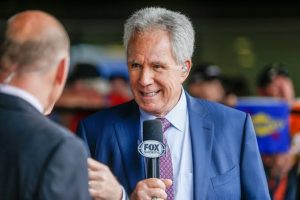
In 2015, Peyton Manning, one of the most successful quarterbacks in NFL history, made a significant decision to take a pay cut in order to return to the Denver Broncos for another season.
Manning agreed to reduce his salary from $19 million to $15 million, a $4 million decrease, as part of a broader strategy to help the team manage its salary cap while maintaining a strong roster for the 2015 season. This decision not only highlighted Manning’s commitment to the Broncos but also his understanding of the financial constraints and team-buildi needs within the league.

Manning’s decision to accept a pay cut was significant for several reasons. First and foremost, it demonstrated his desire to continue playing for the Broncos and contribute to their pursuit of an NFL championship.
While Manning’s individual performance had been impressive in previous seasons, he recognized that the Broncos needed to allocate more resources toward strengthening other areas of the team, such as their defense and offensive line. By reducing his salary, Manning allowed the team’s front office to better manage the salary cap, giving them more flexibility to sign key players who could help the team contend for a Super Bowl title.
Furthermore, Manning’s decision to take a pay cut also reflected his leadership qualities. At that stage in his career, Manning was not only the Broncos’ starting quarterback but also the face of the franchise.
His actions set a tone for the rest of the team, signaling that winning a championship was more important than individual financial gain. This selflessness likely resonated with his teammates and helped to foster a culture of teamwork and commitment within the locker room.
While $15 million was still an impressive salary, the pay cut underscored Manning’s willingness to make sacrifices for the greater good of the team. It was also a reflection of the changing nature of the NFL salary structure, where veteran players with significant contracts may be asked to take pay cuts in order to create space for younger players and other star athletes.

By making this move, Manning showed that he was willing to adjust his compensation in order to maintain a competitive and well-rounded roster, which ultimately contributed to the Broncos’ success in the 2015 season.
In terms of on-field performance, Manning’s play during the 2015 season was a subject of scrutiny. He had been dealing with injuries, including a foot problem, and his production had declined somewhat compared to his peak years.
Despite these challenges, Manning remained a valuable leader and presence for the Broncos. His decision to take a pay cut, combined with his determination to play through the pain, helped to rally the team around a common goal: winning the Super Bowl.
Indeed, the Broncos went on to win Super Bowl 50 that season, defeating the Carolina Panthers 24-10. While Manning’s physical performance in the game was not spectacular, he played a crucial role in guiding the team to victory through his experience and leadership. The Broncos’ defense, led by Von Miller, was the standout unit of the game, but Manning’s decision to take a pay cut and his ability to lead the offense were integral parts of the team’s overall success.
In the end, Peyton Manning’s decision to take a $4 million pay cut in 2015 not only benefited the Broncos financially but also demonstrated his dedication to winning and his willingness to put the team’s needs ahead of personal financial interests. It was a move that would be remembered as part of his legacy as one of the greatest quarterbacks in NFL history, cementing his status as a true team player and leader.





